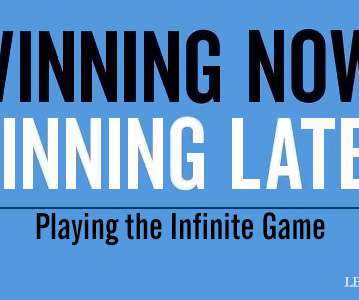Winning Now, Winning Later: Playing the Infinite Game
Leading Blog
JUNE 23, 2020
He developed three principles of short- and long -term performance that forced them to consider the long- and short-term implication in every decision they made: 1. Grow while keeping fixed costs constant. Scrub accounting and business practices down to what is real. Invest in the future, but not excessively.














Let's personalize your content